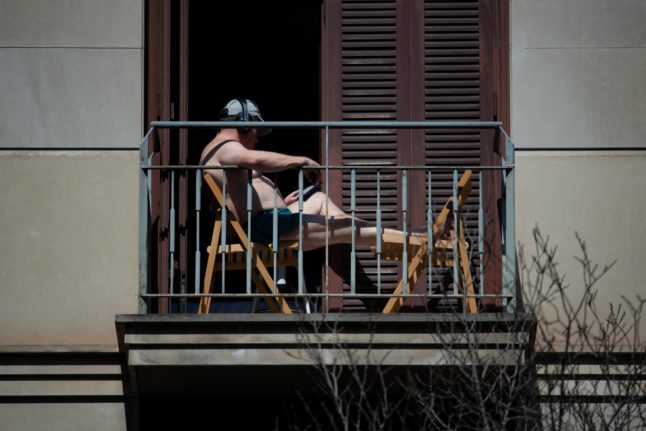Spain’s Ministry of Health is set to resume looking at the regulation of medical cannabis.
Sources from the Ministry, headed by Sumar’s Mónica García, have confirmed to various outlets in the Spanish press that they intend to press on with draft legislation and relaunch the creation of a medical programme from mid-January.
The government had previously looked into the issue and the Spanish Parliament even approved a draft document that urged for cannabis regulation for medicinal purposes, but with the rush of elections at the end of the last legislature the issue was ultimately side-lined.
READ ALSO: What’s the law on cannabis in Spain?
Now the Health Ministry wants to reignite the process and is reviewing the existing draft legislation, which was drawn up on the basis of findings by a Congressional committee and was something backed by all parties besides right-wing Partido Popular (PP) and Vox, who voted against.
There is no clear deadline for when legislation will formally be presented to the Congress of Deputies, or when medical cannabis could become legal in Spain if approved.
However the fact that García, a far-left politician, has been given the health brief means that the Ministry will likely have more thrust to legalise than previous PSOE Health Ministers, who have historically been sceptical of the issue.
READ ALSO: What you need to know about cannabis clubs in Spain
Spain is one of the few major European countries that does not have a regulated medical cannabis programme, despite the fact that it has broad public support (84 percent of Spaniards polled were in favour, according to CIS data) and a majority of lawmakers in Parliament have already endorsed a medical programme of some sort.
Equally, with the current distribution of seats in the House of Deputies, a vote in favour of medical marijuana legalisation seems plausible.
However, the Spanish Medical Cannabis Observatory (OECM), the group that has pushed hardest for medicinal regulation in Spain, has warned against rushing through the legislation, arguing instead that being too ambitious could be detrimental to potential patients who need cannabis for pain relief.
Carola Pérez, OECM president, said in the Spanish press: “we have already had many unfulfilled promises since 2016.”
There is no talk of legalising recreational cannabis for now. Recreational use in Spain still exists in a rather confusing grey area, with personal possession (of which the exact amount is not legally defined) not considered illegal but not legal either, with public possession subject to fines.
Recreational consumption is not illegal on private property, nor is growing a small number of plants for personal consumption. In Spain, cannabis ‘associations’ exploit these legal loopholes to have Amsterdam-style coffee shops, though they too are occasionally subject to seizure by the police.
READ ALSO: What you need to know about cannabis clubs in Spain
In Spain, 14.9 percent of the adult population polled in 2021 declared themselves habitual consumers (defined by having consumed in the last month), after reaching peaks of 20.1 percent in 2008, according to the National Plan on Drugs. Cannabis is the most consumed non-legal drug in Spain, but falls far behind legal drugs such as tobacco (23.9 percent) and alcohol (53.6 percent).



 Please whitelist us to continue reading.
Please whitelist us to continue reading.
Member comments